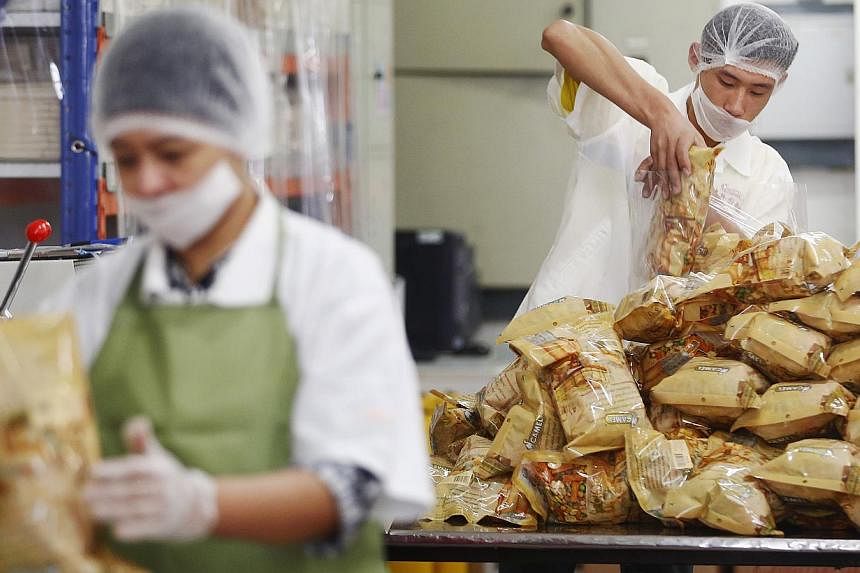SINGAPORE - Subdued regional trading activity, ongoing restructuring pressures and a slowing domestic property market kept a lid on Singapore's economic growth over the past six months.
Despite the less-than-stellar growth numbers, however, there are encouraging signs that ongoing restructuring efforts are bearing fruit particularly in the manufacturing sector, the Monetary Authority of Singapore (MAS) said in its biannual Macroeconomic Review released on Tuesday.
While the manufacturing sector benefitted modestly from an uptick in the United States economy, this was outweighed by a slowdown in trade-related services partly due to softening regional and global commodity demand.
Firms in labour-intensive sectors continued to feel the effects of the manpower crunch, while a slowing residential property market and recent delays in public sector projects such as the Ng Teng Fong General Hospital dragged down the construction industry.
This "differentiated growth performance" across sectors is likely to continue in the coming quarters, the central bank said.This is because the uneven global economic recovery will weigh on certain sectors, particularly externally-oriented services, even as ongoing restructuring puts a cap on growth across the economy.
In addition, some segments of manufacturing will continue to grapple with resource constraints and falling product prices.
Domestically-oriented sectors are expected to "remain broadly resilient" on the back of strong underlying demand, "although businesses that are more reliant on labour inputs or face greater competition could experience profit margin pressures".
At its biannual monetary policy review earlier this month, the MAS announced it would maintain its stance of allowing a "modest and gradual" appreciation of the Singapore dollar, even amid slowing economic growth and rising core inflation.
Singapore's economy is expected to expand between 2.5 and 3.5 per cent this year, and at a broadly similar pace next year. "This should be seen in the context of the domestic economy settling down to a slower, but more sustainable growth path," the MAS said in its Review, which explains the basis for the central bank's policy decisions.

Amid these cyclical developments, the central bank also highlighted structural transitions taking place in Singapore's economy.
Electronics manufacturers in particular are shifting towards higher-margin production and moving up the value chain, the MAS said.
"A combination of factors including the absence of a strong recovery in Europe and the regional economies, as well as longer-term industry-specific factors, have prompted the ongoing upgrade within the domestic IT industry."
Apart from high value-added production, local electronics firms are also increasingly moving into activities such as chip design and delivery of services-driven IT solutions.
"The growth of these activities, in tandem with the global trend towards servicisation in IT, augurs well for Singapore's electronics and information & communications sectors," the MAS said.


